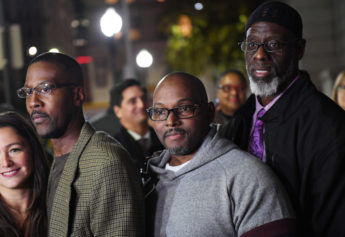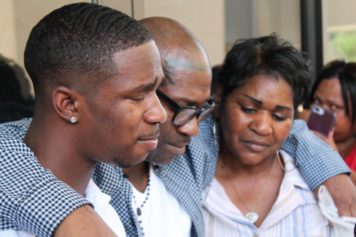At a time when the U.S. has been imprisoning an unprecedented number of African-American men, a massive review of criminal cases by the FBI and Justice Department has revealed a mind-boggling number of flaws in forensic testimony from the FBI lab, according to The Washington Post. This raises the possibility that hundreds and maybe thousands of innocent people could be behind bars because of the mistakes.
The Post story quotes government officials as saying that “nearly every criminal case reviewed by the FBI and the Justice Department as part of a massive investigation started in 2012 of problems at the FBI lab has included flawed forensic testimony from the agency.”
The inquiry began after a Washington Post story two years ago concluded that flawed forensic evidence involving microscopic hair matches might have led to the convictions of hundreds of potentially innocent people. According to the Post, the majority of the defendants were never told of the problems in their cases.
The government inquiry encompasses 2,600 convictions and 45 death-row cases from the 1980s and 1990s, before DNA testing became common. The FBI crime lab reported matches to crime-scene samples that might have been inaccurate.
While the review had been stopped after 160 cases were investigated, it has now been resumed upon order this month of Deputy Attorney General James M. Cole.
As an example of someone who could have been affected by the halt in the review, the Post offered the case of Florida death-row inmate James Aren Duckett, who challenged his 1988 conviction based on an FBI hair match. His appeal was denied by the Florida Supreme Court.
The FBI had initially said the problems were the fault of a single rogue examiner, but the Post contends that the latest revelations put that claim into doubt.
“I see this as a tip-of-the-iceberg problem,” Erin Murphy, a New York University law professor and expert on modern scientific evidence, told the Post. “It’s not as though this is one bad apple or even that this is one bad-apple discipline. There is a long list of disciplines that have exhibited problems, where if you opened up cases you’d see the same kinds of overstated claims and unfounded statements.”
Despite the revelations, it’s unclear whether any relief will be granted to those who might be in jail wrongly because the courts and law enforcement authorities have been reluctant to allow defendants to retroactively challenge old evidence using newer, more accurate scientific methods, according to the Post.
Last August, officials completed reviews and notified a first wave of defendants in 23 cases, including 14 death-penalty cases, that FBI examiners “exceeded the limits of science” when they linked hair to crime-scene evidence, the Post said.
Only 10 percent of the 2,600 questioned convictions and perhaps two-thirds of questioned death-row cases will have been reviewed after more than two years. But the Post said the Justice Department is in the process of notifying defendants about errors in two more death-penalty cases and in 134 non-capital cases over the next month, and will complete evaluations of 98 other cases by early October, including 14 more death-penalty cases.


